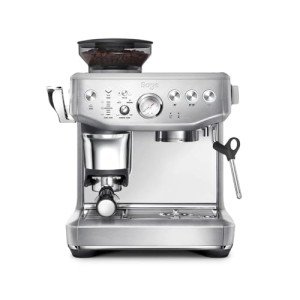Best Espresso Machines: A Comprehensive Guide
Espresso machines have actually ended up being a staple in coffee culture, drawing in enthusiasts and casual drinkers alike. The best shot of espresso can elevate the coffee experience, and selecting the best machine is essential for accomplishing this objective. This article digs into the world of espresso machines, checking out some of the very best alternatives readily available on the marketplace today. It will cover the types of machines, key functions to think about, a comparison table, and often asked questions.
Kinds Of Espresso Machines
Before venturing into specific items, it's necessary to understand the various types of espresso machines offered:
- Manual Machines: Also called lever machines, these need the user to manually control the pressure and flow of water. They provide a hands-on experience however demand more ability.
- Semi-Automatic Machines: These machines automate the pressure and temperature, while permitting users to control the shot timing. They are ideal for those who desire to take control without requiring excessive effort.
- Automatic Machines: These gadgets automate the brewing process completely; users simply choose the size and strength of the shot. Great for novices.
- Super-Automatic Machines: This type grinds the beans, tamps, brews, and even froths milk automatically. They're exceptional for convenience, making them appropriate for those who want speed without compromising quality.
- Pill Machines: Utilizing pre-packaged coffee pods, these are the most basic machines for making espresso. While practical, they frequently lack the depth of flavor discovered in newly ground beans.
Key Features to Consider
When searching for the best espresso machine, numerous essential features need to guide your choice:
- Pressure: The ideal pressure for an espresso machine is 9 bars. This pressure is crucial for drawing out flavors successfully.
- Temperature Control: Consistent water temperature is essential for a good espresso. Look for machines with PID (Proportional Integral Derivative) temperature level control.
- Develop Quality: Machines made from high-quality materials tend to last longer and provide a better experience.
- Size and Footprint: Consider your offered counter area. Some machines are compact, while others need substantial space.
- Grinder Quality: A built-in grinder provides benefit, however the quality of the grinder impacts the final taste. Doser or doserless types alter the taste profile substantially.
- Ease of Use and Cleaning: Consider how easy the machine is to tidy and maintain. Machines with removable parts typically use simpler cleaning.
Contrast Table of Best Espresso Machines
Here's a contrast table showcasing a few of the most recommended espresso machines based on various user reviews and professional rankings:
| Espresso Machine | Type | Pressure (Bars) | PID Control | Grinder Type | Rate Range |
|---|---|---|---|---|---|
| Breville Barista Express | Semi-Automatic | 9 | Yes | Cone-shaped burr grinder | ₤ 600 - ₤ 700 |
| De'Longhi EC155 | Manual | 15 | No | No grinder | ₤ 100 - ₤ 150 |
| Rancilio Silvia | Semi-Automatic | 9 | No | No grinder | ₤ 700 - ₤ 800 |
| Saeco Xelsis | Super-Automatic | 15 | Yes | Integrated grinder | ₤ 1,000 - ₤ 1,500 |
| Nespresso VertuoPlus | Pill | N/A | No | No grinder | ₤ 150 - ₤ 200 |
| Gaggia Classic Pro | Semi-Automatic | 9 | Yes | No grinder | ₤ 400 - ₤ 500 |
Summary of Best Espresso Machines
- For Beginners: The De'Longhi EC155 is an outstanding beginning point due to its affordable rate and ease of use.
- For Serious Enthusiasts: The Rancilio Silvia uses a balance between quality and control, appealing to those who want to refine their barista abilities.
- For Convenience: The Saeco Xelsis sticks out as a top super-automatic alternative, perfect for users seeking maximum ease without jeopardizing taste.
Often Asked Questions (FAQs)
Q1: What is the best pressure for extracting espresso?A1: The perfect pressure is 9 bars; this pressure level is optimum for extracting the flavors in espresso.
Q2: How often should I clean my espresso machine?A2: Regular cleaning is vital. For machines with integrated grinders, it is best to clean them after every use. Deep cleansing must be done weekly or month-to-month depending on use and design.
Q3: Can I use routine coffee in an espresso machine?A3: Espresso is made from carefully ground coffee, preferably roasted specifically for espresso. While you can use regular coffee, the taste and extraction may vary.
Q4: How long can my espresso machine last?A4: With correct care and maintenance, a high-quality espresso machine can last numerous years, even years.
Q5: What grinder should I use for espresso?A5: A burr grinder is more suitable, as it offers constant grind size which is crucial for proper extraction.
The journey to finding the very best espresso machine can be an exciting one, filled with discovery and potential for developing one's coffee palate. Whether selecting the simpleness of a capsule machine or the control of a manual design, understanding the various types and functions can considerably improve the experience. With advances in innovation and innovation, there's a suitable espresso machine for all preferences and skill levels on the market today. Buying the best machine not just promises excellent flavor however also elevates the general coffee experience.

